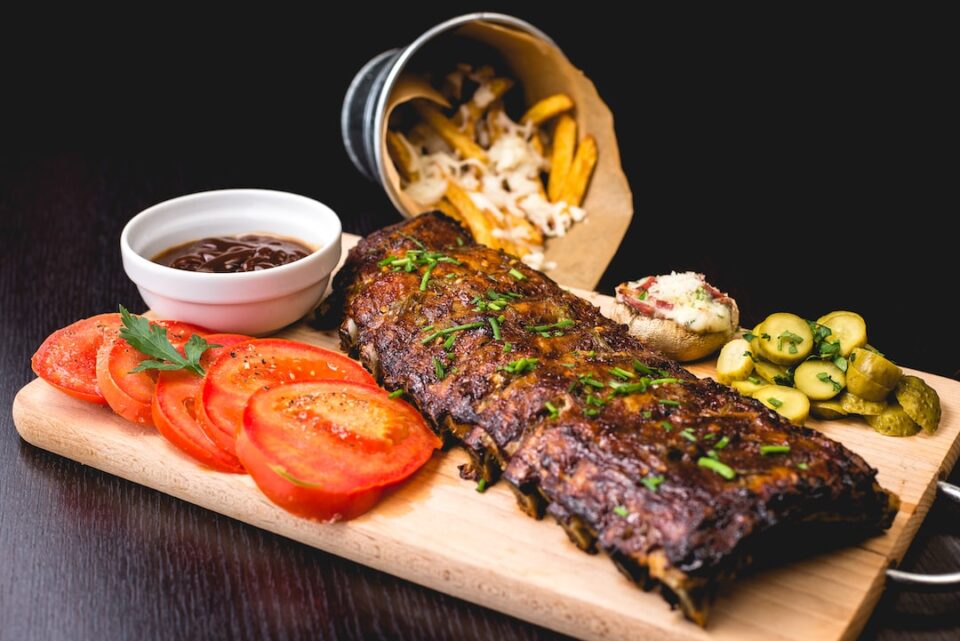Cooking with herbs and spices is a great way to add flavor to your meals while also improving your overall health. Herbs and spices are packed with nutrients and antioxidants that can reduce inflammation, fight disease, and promote overall wellness. With some basic knowledge and a little bit of experimentation, you can learn how to use herbs and spices to take your meals to the next level. Here are some tips to get you started.
Choose the Right Herbs and Spices
There are hundreds of herbs and spices out there, each with its own unique flavor and health benefits. Some common options include:
Basil: A staple in Italian cuisine, basil adds a fresh, sweet flavor to dishes.
Cinnamon: This warming spice is great for desserts and also has blood sugar-balancing benefits.
Ginger: Known for its anti-inflammatory properties, ginger is a great addition to stir-fries and soups.
Rosemary: This Mediterranean herb has a pine-like flavor and is great for seasoning meats and vegetables.
Turmeric: Another anti-inflammatory powerhouse, turmeric is a staple in Indian cuisine and has a bright yellow color.
Thyme: This herb adds a sweet, savory flavor to dishes and is a common ingredient in French cuisine.
Experiment with different herbs and spices to find the ones you like best. Keep in mind that some flavors are more subtle than others, so you may need to add more than you think to really taste the difference.
Store Them Properly
To get the most flavor and health benefits out of your herbs and spices, it’s important to store them properly. Keep them in an airtight container in a cool, dark place. Avoid storing them near the oven or stove, as the heat can cause them to lose their flavor. You can also freeze fresh herbs to use later.
Prepare Them Correctly
Different herbs and spices require different preparation methods to get the most flavor out of them. For example:
Fresh herbs: Chop them finely and add them at the end of cooking to preserve their flavor.
Dried herbs: These are more potent than fresh herbs and can be added earlier in the cooking process to give the flavors time to develop.
Ground spices: These are already ground up and are great for adding flavor to dry rubs or baked goods.
Whole spices: These are great for infusing flavor into liquids like soups and stews. Toast them in a dry pan before using them to bring out their flavor.
Learn Which Flavors Go Together
Certain herbs and spices complement each other well, while others may clash. Here are some common flavor pairings to consider:
Basil and oregano: These two Italian herbs work well together in pasta sauce.
Cumin and coriander: These two spices are common in Indian cuisine and work well in curries and other spiced dishes.
Garlic and rosemary: This is a classic flavor combo for roasting meats.
Ginger and turmeric: These two anti-inflammatory spices are often used together in teas and golden milk.
Lemon and thyme: This is a fresh and flavorful combo for marinades and dressings.
Experiment with different flavor combinations to find your favorite pairings.
Start with Simple Dishes
If you’re new to cooking with herbs and spices, start with simple dishes that don’t require a lot of ingredients. For example, try roasting vegetables with olive oil, salt, and pepper, then adding some fresh herbs like thyme or rosemary at the end. Or, add some cinnamon and nutmeg to your oatmeal in the morning for a warming and flavorful breakfast.
Don’t Be Afraid to Make Mistakes
Cooking with herbs and spices is all about experimentation. Don’t be afraid to make mistakes or try new things. If a dish doesn’t turn out the way you wanted it to, try adjusting the flavors next time. Remember that cooking is a process of trial and error, and it takes time to learn what works and what doesn’t.
In conclusion, cooking with herbs and spices is an easy and delicious way to add flavor and health benefits to your meals. Start by choosing the right herbs and spices, storing them properly, and preparing them correctly. Experiment with different flavor combinations and start with simple dishes. Most importantly, don’t be afraid to make mistakes and have fun in the kitchen!

